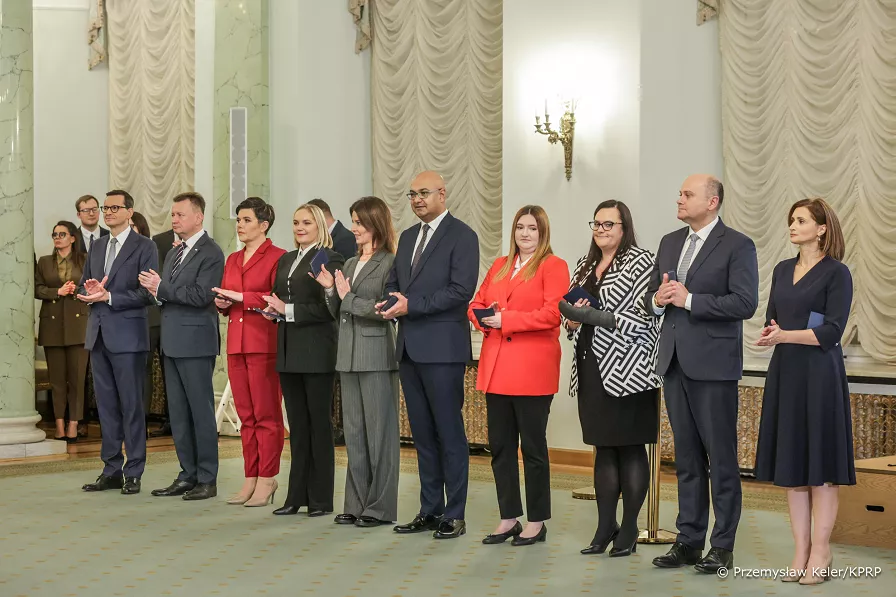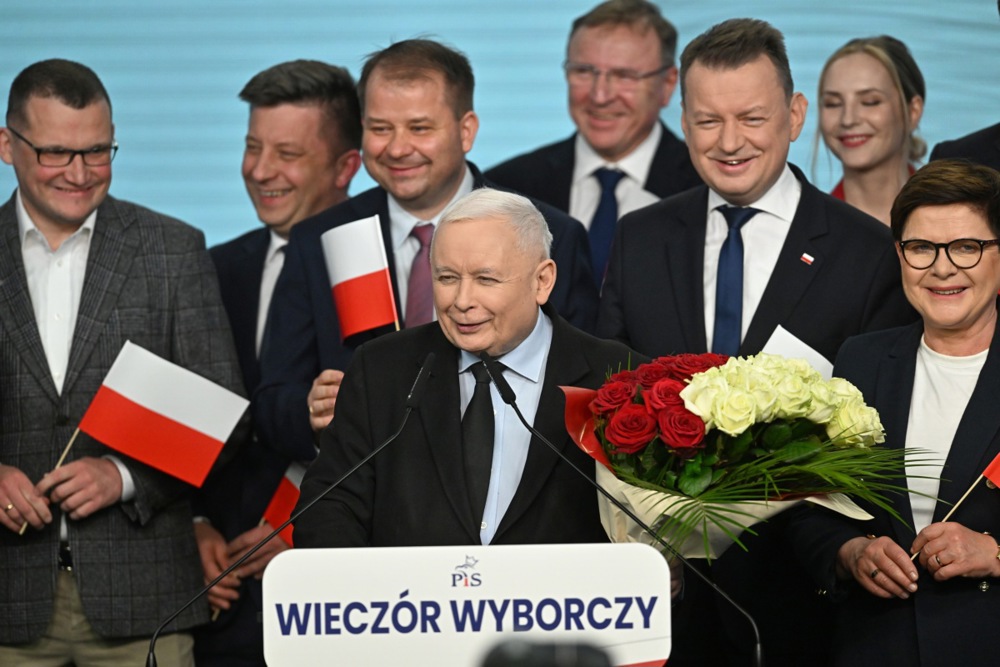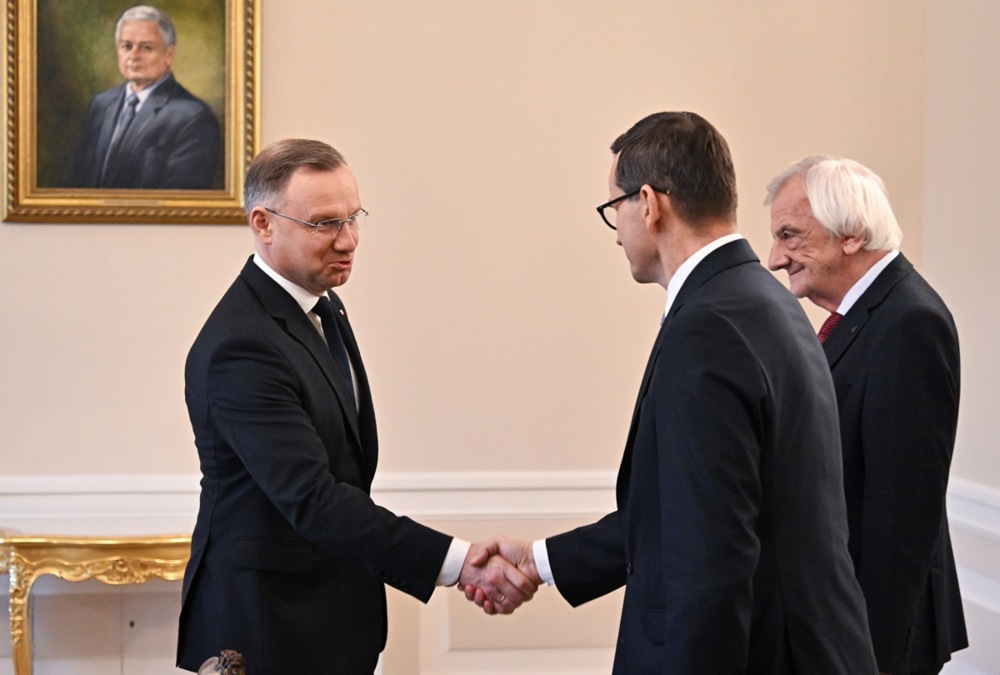Mateusz Morawiecki, who was the Polish prime minister in the last Conservative (PiS) government, said he may run for president in next year’s election and might be prepared to do so without the backing of his party.
Michał Dworczyk MEP, who served in the Morawiecki government, told Polish State Radio 3 on 24 June that the real issue was whether Morawiecki would run at all, rather than if his party would back him.
“I will support him if he stands. The only issue is whether he actually stands,” Dworczyk said.
He did not elucidate on whether PiS support was an essential factor in that despite repeatedly being asked about Morawiecki’s position.
The PiS leader Jarosław Kaczyński recently told broadcaster wPolsce that Morawiecki was a potential presidential candidate but that the party was unlikely to select him as he came with too much “baggage” from his government days.
Kaczyński added that the “PiS needed a candidate who would not only guarantee the party’s candidate made it into the second and decisive round of voting but one who could win that contest and become president”.
Asked about Kaczyński’s remarks, Dworczyk said that “all candidates carry baggage” and that Morawiecki’s “experience of governing and political skills make him the natural choice for the Right”.
He also said he did not know who what he called “this mystery perfect candidate” the PiS leader seemed to be referring to actually was.
For Morawieck, latest opinion polls predict him receiving between 25 and 30 per cent support in the first round of voting for president, which only two candidates can contest.
In regards to the second round, he polls at about 40 per cent against 60 per cent for either Warsaw mayor Rafał Trzaskowski or the Polish Parliament Speaker Szymon Hołownia, should one of them stand.
Tensions have grown between Morawiecki and Kaczyński in the aftermath of the European Parliament elections of June 6-9.
The PiS leader was unhappy about the fact that four of Morawiecki’s allies, one of whom was Dworczyk, managed to overcome his own nominees in the ballot.
Elsewhere, potential independent Conservative candidate and media presenter Dorota Gawryluk categorically denied she was interested in contesting the presidency. That opens up the possibility of a Conservative challenger who may not necessarily be backed by the PiS.
Polish Prime Minister Donald Tusk’s ruling Civic Coalition (KO) is also considering a choice of candidate for president.
Tusk himself has, for the time being, ruled himself out of the picture, leaving Trzaskowski and the foreign minister Radosław Sikorski as the two main potential candidates.
Trzaskowski had stood for the KO in the last presidential election in 2020
Both he and Sikorski have made no secret of the fact that they are potentially interested in standing but would only do so with the KO’s explicit support.
That has prompted some in the party to call for an internal ballot to decide who is to be the its candidate, as was the case in 2010 and 2020, although that would only happen on the instruction of Tusk.
Kaczyński regards such internal primaries as unnecessarily divisive and potentially risky in that a candidate who may be acceptable to the party rank-and-file may not fare well with the electorate as a whole.
The presidential election in 2025 is seen as a crucial contest in which Tusk hopes he and his liberal allies will be left fully able to implement legislation and remove PiS appointees from the judiciary and the central bank.
For Kaczyński’s PiS, keeping control of the presidency is essential not only to prevent Tusk from seizing total control but also to give the party a possible chance to build an alternative parliamentary majority that might see Tusk removed from office.





